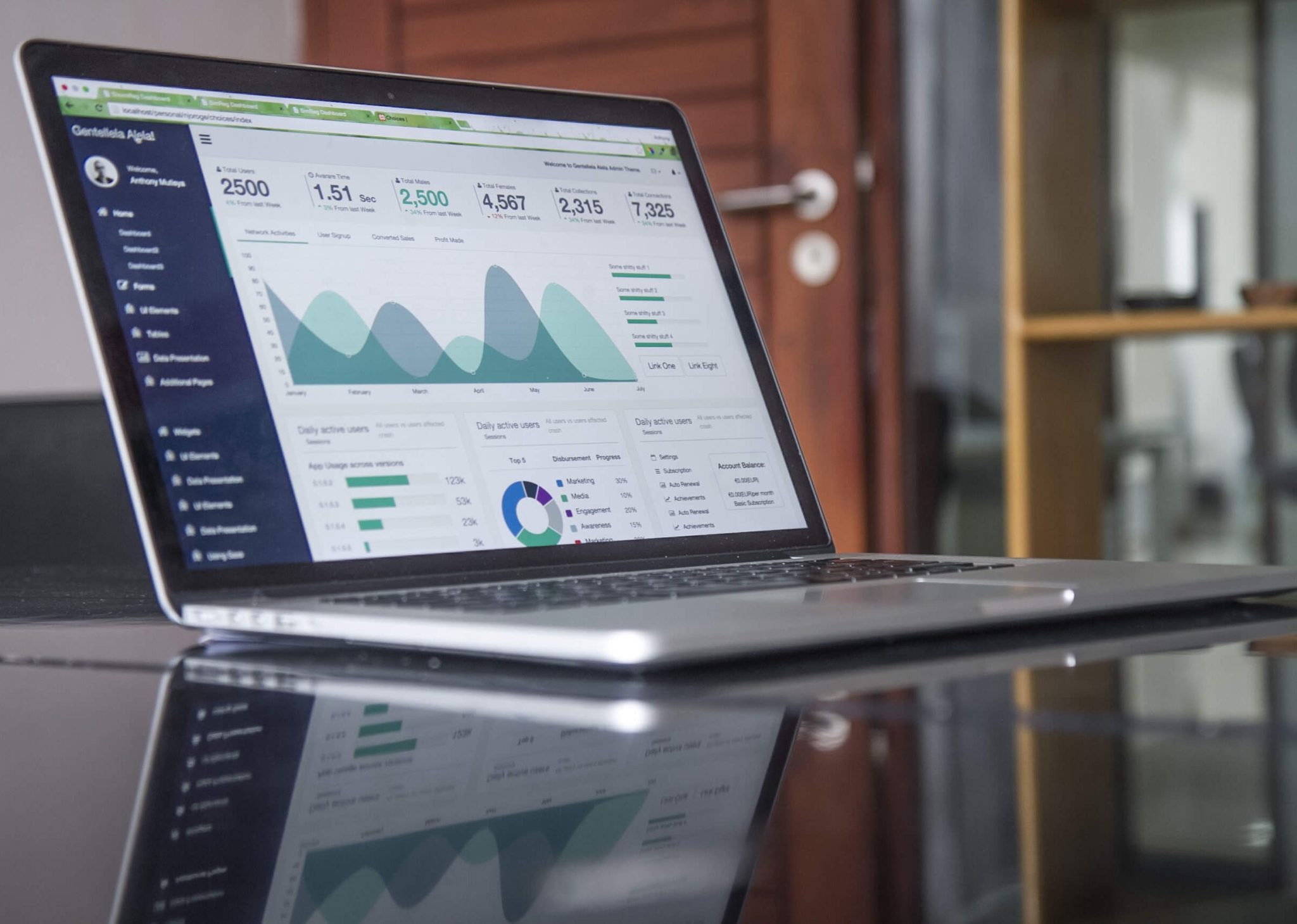Smarter SEO Metrics: Beyond The Basics
In the vast landscape of SEO, where the pursuit of visibility reigns supreme, the need for more sophisticated metrics becomes paramount. Basic measurements fall short in capturing the true effectiveness of SEO efforts. To truly unlock the insights hidden within the digital realm, a more advanced approach is required.
Enter the realm of smarter SEO metrics, where the boundaries of traditional analysis are pushed beyond their limits. By delving into the realms of traffic segmentation, seasonality considerations, and rankings evaluation, a more comprehensive understanding of SEO effectiveness can be achieved.
This article explores the power of advanced measurement techniques, uncovering the impact of brand and non-brand traffic, tracking progress over time, and illuminating the influence of individual pages. By embracing a cross-channel, data-driven approach, the true value of SEO can be revealed, providing businesses with the strategic insights needed to stay ahead in the digital domain.
Key Takeaways
– Basic SEO metrics are not effective indicators of success.
– Splitting traffic into brand and non-brand buckets helps identify the impact of SEO.
– Seasonality should be considered when measuring SEO performance.
– Conversions should be measured using a cross-channel, data-driven model.
Smarter SEO Metrics: Beyond the Basics
This article expands on the pre-existing knowledge by delving into more advanced metrics that can be used to measure SEO effectiveness beyond the basic metrics discussed earlier.
One of these advanced metrics is advanced conversion tracking, which involves measuring conversions using a cross-channel, data-driven model with a 30-day lookback window. This approach allows for a more comprehensive understanding of the impact of SEO on conversions and helps align different conversion events with the level of intent of targeted keywords.
By implementing advanced conversion tracking, marketers can gain valuable insights into the effectiveness of their SEO efforts and make data-driven decisions to optimize their strategies.
This strategic approach to measuring SEO impact goes beyond the surface-level metrics and provides a more accurate representation of the true business impact of SEO.
Advanced Measurement Techniques
Advanced measurement techniques in the field of search engine optimization delve deeper into the intricate web of data, unearthing hidden insights and allowing for a more comprehensive understanding of the impact and effectiveness of SEO strategies. These techniques go beyond basic SEO metrics and provide a more nuanced view of the success of SEO efforts.
Some of these advanced measurement techniques include:
– Advanced conversion tracking: This involves using a cross-channel, data-driven model with a 30-day lookback window to measure conversions. It aligns different conversion events with the level of intent of targeted keywords, providing a more accurate assessment of the impact of SEO on conversions.
– Linking strategies: Instead of focusing solely on link quantity, advanced measurement techniques emphasize the business impact of links. It looks at the relevance and quality of links, as well as their impact on rankings and organic traffic.
– Analyzing individual pages: Advanced measurement techniques involve analyzing the impact of individual pages on rankings and organic traffic. This allows for a more granular understanding of which pages are driving SEO success and which ones need improvement.
– Tracking trends over time: Instead of solely evaluating rankings at a specific point in time, advanced measurement techniques track rankings over time to identify trends and monitor progress. This helps in understanding the effectiveness of SEO strategies and making data-driven decisions for optimization.
These advanced measurement techniques provide a more sophisticated and strategic approach to measuring SEO effectiveness. By incorporating advanced conversion tracking, focusing on linking strategies, analyzing individual pages, and tracking trends over time, businesses can gain deeper insights into the impact of their SEO efforts and make data-driven decisions for optimization.
Traffic Analysis and Segmentation
Traffic analysis and segmentation techniques allow for a more comprehensive understanding of the sources and characteristics of website traffic, enabling businesses to identify patterns and trends that can inform SEO strategies and optimization efforts. One important aspect of traffic analysis is conversion attribution, which involves tracking and assigning value to different conversion events based on their level of intent. By aligning conversion events with the targeted keywords, businesses can gain insights into the effectiveness of their SEO efforts in driving desired actions. Additionally, seasonality and traffic patterns play a crucial role in measuring SEO performance. Understanding how traffic fluctuates throughout the year can help businesses identify seasonal trends and adjust their optimization strategies accordingly. By analyzing and segmenting traffic data, businesses can make data-driven decisions and optimize their SEO efforts for better results.
Evaluating Rankings Over Time
Rankings can be assessed over a period of time to track progress and identify trends in order to evaluate the effectiveness of SEO efforts. By consistently monitoring and analyzing rankings, marketers can gain valuable insights into the performance of their SEO strategies.
Tracking progress involves comparing current rankings with previous ones to determine if there has been an improvement or decline. This allows marketers to gauge the success of their optimization efforts and make informed decisions for future optimizations.
Additionally, measuring trends in rankings can help identify patterns and fluctuations that may be influenced by various factors such as algorithm updates or changes in user behavior. By understanding these trends, marketers can adapt their strategies accordingly to stay ahead in the constantly evolving SEO landscape.
Overall, evaluating rankings over time is a crucial aspect of measuring SEO effectiveness and provides valuable information for strategic decision-making.
Analyzing Individual Page Impact
By examining the influence of individual pages on search engine rankings, marketers can gain valuable insights into the impact of their website’s content and structure. This analysis allows them to identify the specific pages that are driving organic traffic and conversions, and optimize them accordingly.
Here are four key aspects to consider when analyzing individual page impact:
1. Conversion analysis: By analyzing the conversion rates of individual pages, marketers can determine which pages are effectively driving desired actions, such as purchases or form submissions. This information can help them prioritize optimization efforts and improve overall website performance.
2. Cross channel attribution: Understanding how individual pages contribute to conversions across different channels can provide a comprehensive view of their impact. By utilizing cross-channel attribution models, marketers can accurately attribute conversions to the specific pages that influenced them, regardless of the channel they occurred on.
3. Page-level engagement metrics: Evaluating metrics such as bounce rate, time on page, and scroll depth can provide insights into the quality and relevance of individual pages. Pages with high engagement metrics are more likely to rank well and drive conversions.
4. Keyword performance: Analyzing the performance of individual pages for targeted keywords can help marketers identify areas for improvement and optimize their content accordingly. By aligning the intent of keywords with the content and structure of individual pages, marketers can increase their chances of ranking well and driving relevant organic traffic.
Frequently Asked Questions
How can seasonality affect SEO performance and how should it be taken into account in measurement techniques?
Seasonality can have a significant impact on SEO performance. It refers to the recurring patterns and fluctuations in search behavior that are influenced by factors such as holidays, seasons, and events.
To accurately measure SEO’s business impact, it is essential to consider seasonality in measurement techniques. This can be done by comparing performance during different time periods and adjusting expectations accordingly.
By analyzing data trends and identifying patterns, marketers can optimize their SEO strategies to align with seasonal fluctuations and maximize their effectiveness in driving traffic and conversions.
What are some examples of cross-channel conversion events that can be aligned with the level of intent of targeted keywords?
One example of a cross-channel conversion event that can be aligned with the level of intent of targeted keywords is a webinar registration. By optimizing keywords related to the webinar topic, such as ‘learn advanced SEO strategies,’ the intent of the audience is clearly aligned with the educational content offered in the webinar.
Tracking conversions from webinar registrations across different channels, such as organic search, social media, and email marketing, allows for a comprehensive understanding of the impact of SEO efforts on lead generation and audience engagement.
This cross-channel attribution approach provides valuable insights for strategic optimization and resource allocation.
How can businesses measure the business impact of SEO beyond link quantity?
To measure the business impact of SEO beyond link quantity, businesses can utilize advanced SEO metrics. These metrics provide a more comprehensive understanding of SEO effectiveness and its contribution to business goals.
Key performance indicators such as organic traffic growth, conversion rate improvement, and revenue generated from organic search can be measured to assess the business impact of SEO efforts.
By analyzing these metrics in a data-driven and strategic manner, businesses can make informed decisions to optimize their SEO strategies and drive tangible results.
What are some other metrics that can help prove the value of SEO and track trends over time?
To prove the value of SEO and track long-term trends, businesses can utilize several additional metrics.
One key metric is SEO ROI, which measures the return on investment generated by SEO efforts. By analyzing the impact of SEO on conversions, revenue, and customer acquisition costs, businesses can quantify the financial value of their SEO strategies.
Additionally, tracking long-term trends in rankings, organic traffic, and engagement metrics provides insights into the effectiveness of SEO efforts over time.
These data-driven metrics enable businesses to make informed decisions and optimize their SEO strategies for maximum impact.
How does SEO affect overall marketing efforts in relation to other channels?
SEO plays a crucial role in driving organic traffic growth and enhancing brand awareness. By optimizing website content and structure, SEO helps improve search engine rankings, leading to increased visibility and exposure to potential customers.
This, in turn, can positively impact overall marketing efforts by driving more qualified traffic to the website and increasing brand recognition. Through strategic keyword targeting, content optimization, and link building, SEO can effectively contribute to the success of marketing campaigns and improve the overall performance of other marketing channels.





